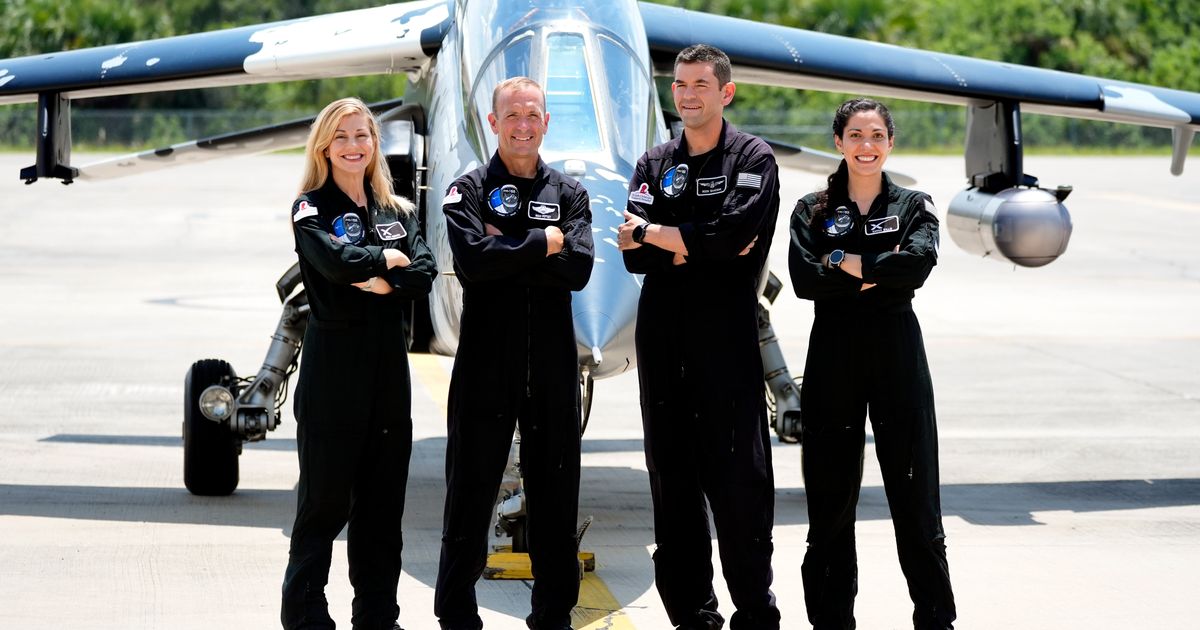Billionaire, Pilot And SpaceX Employees Will Embark On History-Making Spacewalk

Mission Polaris Dawn launched on Tuesday morning, marking the first time private astronauts will go on a spacewalk and the farthest anyone has traveled from Earth since NASA’s Apollo missions more than 50 years ago.
Jared Isaacman, a billionaire entrepreneur and founder of Shift4, a payment processing company, partnered with SpaceX, the private space exploration company founded by Elon Musk, for Tuesday’s launch. In 2021, Isaacman became the first nonprofessional astronaut to travel to space, along with a former cancer patient and two people who won a contest.
Advertisement
This time, Isaacman is bringing along his friend Scott Poteet, a retired U.S. Air Force lieutenant colonel, and two SpaceX employees, Anna Menon and Sarah Gillis. Isaacman and Gillis will go on a spacewalk, scheduled for Thursday, while Poteet and Menon stay in the spaceship to monitor things.
Launching at 5:23 a.m. Eastern from NASA’s Kennedy Space Center in Florida, the crew began their five-day orbit on Tuesday. The launch was originally scheduled for Aug. 28, but a helium leak and then poor weather delayed it, The New York Times reported.
“Space exploration demands patience, resilience, and teamwork,” Isaacman wrote on social media. “We are deeply grateful for the dedication of everyone involved and for the support of those who believe in our mission. Together, we are pushing the boundaries of what’s possible and continuing humanity’s journey to the stars.”
The crew will conduct experiments and studies, including testing laser-based communications and how the human body can handle space, according to SpaceX’s website. The spacecraft is supposed to go into orbit 870 miles from Earth, 17 miles farther than NASA astronauts Pete Conrad and Richard Gordon did in 1966, according to the Times.
Advertisement
The crew is expected to pass through the Van Allen radiation belt, experiencing roughly the same amount of radiation that astronauts endure at the International Space Station for three months, according to the BBC.
There are risks involved with the spacewalk, but Gillis told the Times last month that the crew and engineers at SpaceX have studied to ensure the flight is as safe as possible.
“The first time we got into the simulator and we had to work as a crew, it went horribly wrong,” Gillis said. “We had so much to learn because we weren’t able to yet work as a team.”
Support Free Journalism
Already contributed? Log in to hide these messages.
Isaacman also told the Times that there’s “always a risk calculus” to the flight.
“But the real focus is on what we stand to gain and learn from it,” he said. “And in this case, we’ve got some pretty cool things.”
Support Free Journalism
Already contributed? Log in to hide these messages.

Comments are closed.